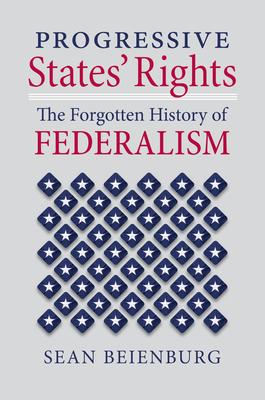Today, when politicians, pundits, and scholars speak of states' rights, they are usually referring to Southern efforts to curtail the advance of civil rights policies or to conservative opposition to the federal government under the New Deal, Great Society, and Warren Court. Sean Beienburg shows that this was not always the case, and that there was once a time when federalism--the form of government that divides powers between the state and federal governments--was associated with progressive, rather than conservative, politics.
In Progressive States' Rights, Sean Beienburg tells an alternative story of federalism by exploring states' efforts in the years before the New Deal of shaping constitutional discourse to ensure that a protective welfare and regulatory governmental regime would be built in the states rather than the national government. These state-level actors not only aggressively participated in constitutional politics and interpretation but also specifically sought to create an alternative model of state-building that would pair a robust state power on behalf of the public good with a traditionally limited national government.
Current politics generally collapse policy and constitutional views (where a progressive view on one policy also assumes a progressive view on the other), but Beienburg shows that this was not always true, and indeed many of those most devoted to progressive policy views were deeply committed to a conservative constitutionalism.
